Vicious reviews have been known to severely damage careers and artistic prospects. In the case of George Bizet (1838-1875), it has been suggested that the horrendous initial reception of Carmen had somehow contributed to the composer’s death. The opera premiered on 3 March 1875 with the leading musical figures of Paris in attendance. Press reviews ranged from disappointment to outrage.
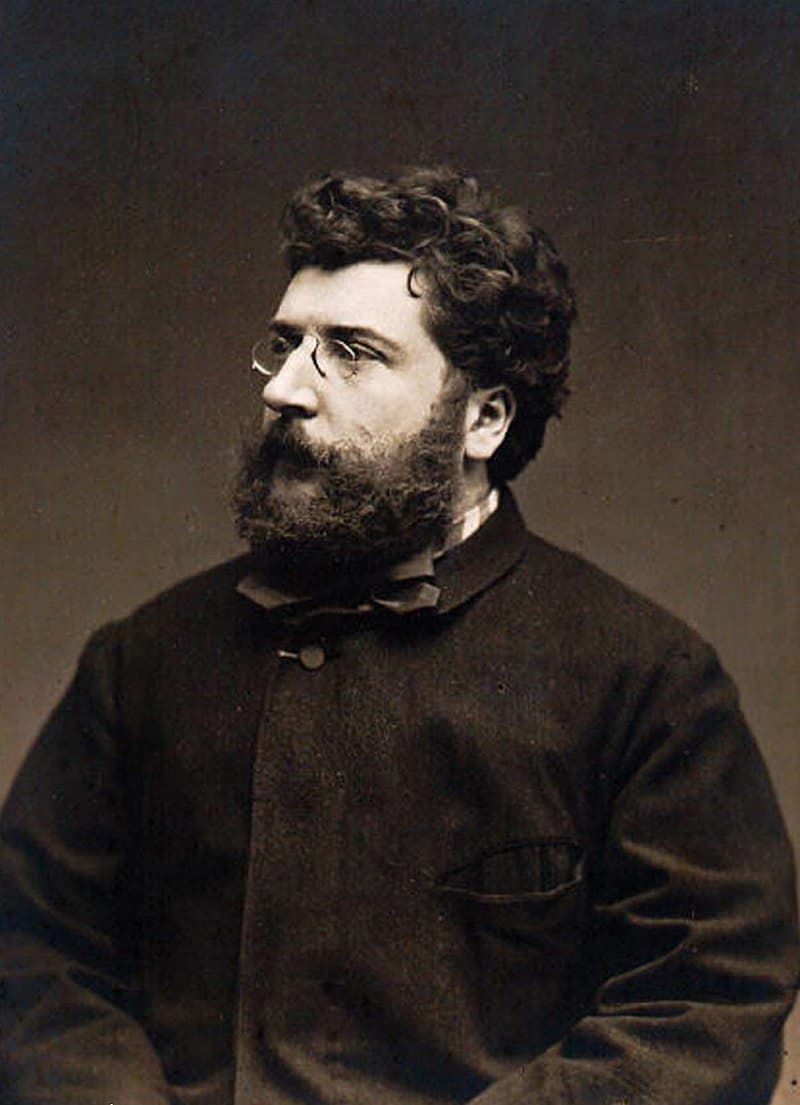
Georges Bizet, 1875
“Mr. Bizet as is known,” wrote a critic, “belongs to that new sect that believes in vaporizing musical ideas instead of enclosing them within definite bounds. For this school of composition, of which Wagner is the high priest, motif is old-fashioned, melody is superannuated; the voice is overpowered by the orchestra, leaving only a feeble echo. Such a way of composing must inevitably produce works that are confused. It is melody that is the design of music. If one takes that away, only educated noise is left. Also, the role of Carmen is not a success for it is trivial and brutal, turning this feline girl into a cynical harlot.”
Pablo de Sarasate: Carmen Fantasy, Op. 25
Bizet was inconsolable, and his character described as “ultra-sensitive and impressionable, and all the more at the mercy of his emotions from his attempts to conceal them.” He was severely torn between the raging desire to curse his judges, “and his terror of believing them.” Bizet constantly harbored premonitions of grim catastrophes and the fear of early death. He was a heavy smoker and constantly suffered from a recurrent throat complaint. While completing Carmen, he had been disabled by severe bouts of “throat angina,” and he suffered an additional attack in late March 1875.
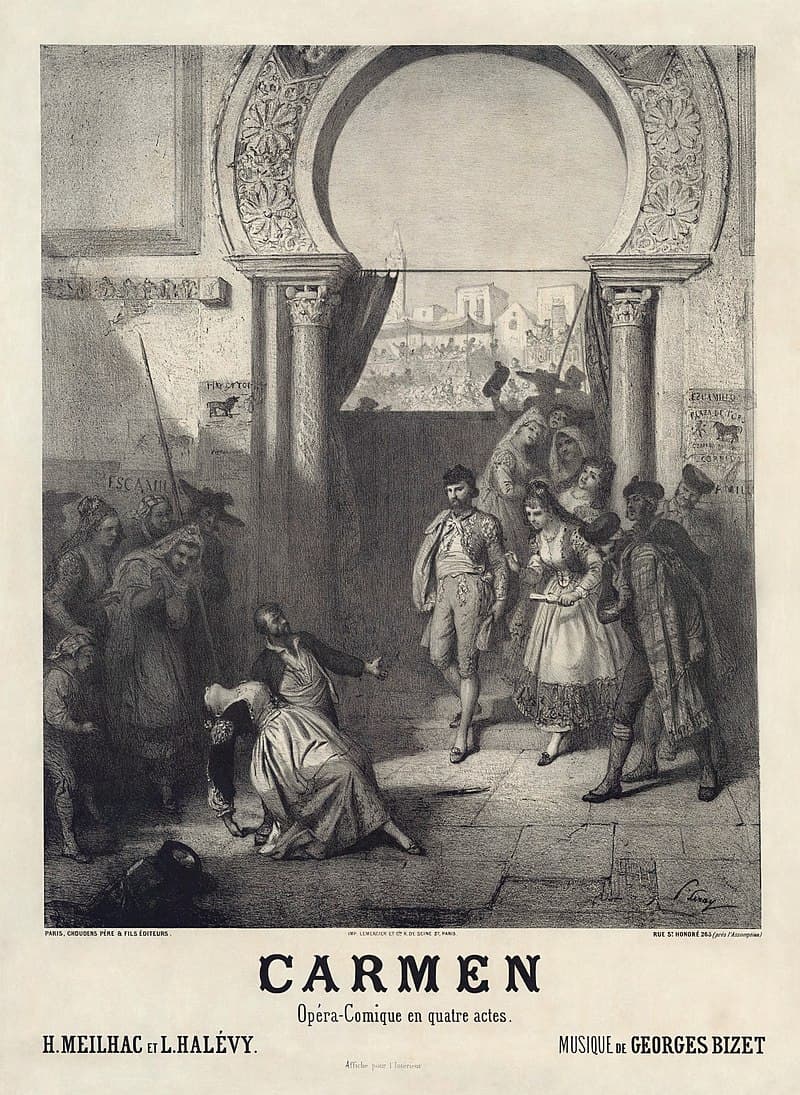
Poster for the première of Georges Bizet’s Carmen
Bizet and his wife had been planning to go into the country, but the composer was still convalescent. His wife tried to persuade him to wait, but Bizet insisted on going immediately, exclaiming that “the Paris air is poisoning me.” However, Bizet soon had another attack, accompanied by difficulty breathing, an abscess in the ear, and increased rheumatism. In fact, he could not get out of bed unaided. As he wrote to a friend, “don’t come on Sunday. Imagine a double pedal A-flat and E-flat going through your head from the left ear to the right. I’m quite done in, I shall write to you.”
Georges Bizet: Carmen, “Trio des Cartes”
Arriving in Bougival at the end of May, Bizet took a long bath in the Seine and was immediately struck down by a violent and incapacitating attack of rheumatism, accompanied by high fever. He partially recovered, but during the night of 1 June, he had a severe heart attack. A doctor was hastily summoned but quickly declared that the crisis was over. He further suggested that his patient’s symptoms were a figment of the imagination, and all that was truly needed was calm and rest.
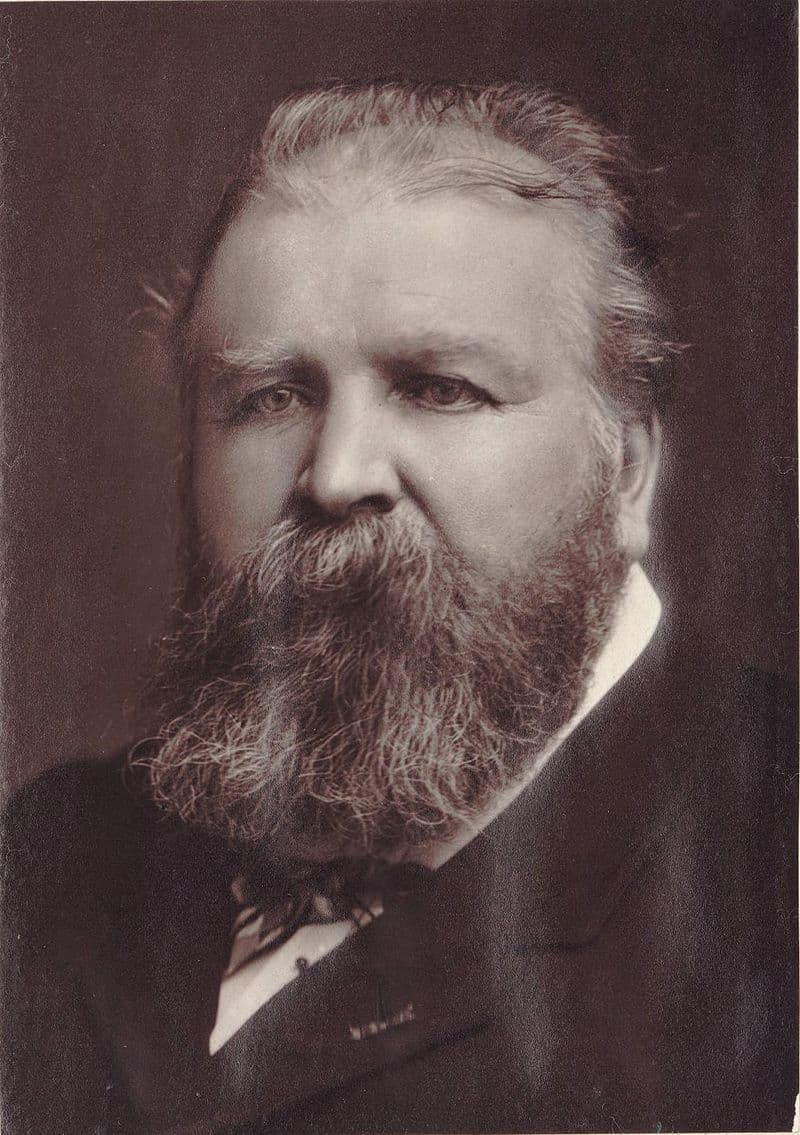
Jules Pasdeloupe, 1880
Bizet was still running a high fever the next day but seemed to feel better when his two sons visited him in the evening. However, he soon had a second heart attack of equal severity, and the doctors were summoned again; when they arrived, Bizet was dead. According to the death certificate Bizet died at 2 am on the morning of 3 June, and the exact cause of his death has never been clearly established.
Georges Bizet: L’Arlésienne Suite No. 1, “Adagietto”
The funeral took place on 5 June at the church of La Trinité in Montmartre. Four thousand people attended, and the musical arrangements were in the hands of Jules Pasdeloupe, conductor of the oldest symphony orchestra in France. The organist Bazille played fantasies on themes from Les pêcheurs de perles and Carmen. Pasdeloup’s orchestra contributed the Patrié “Overture” and the “Adagietto” from L’Arlésienne; the vocal numbers consisted of the “Agnus Dei” and “Pie Jesu” from Les pêcheurs de perles.
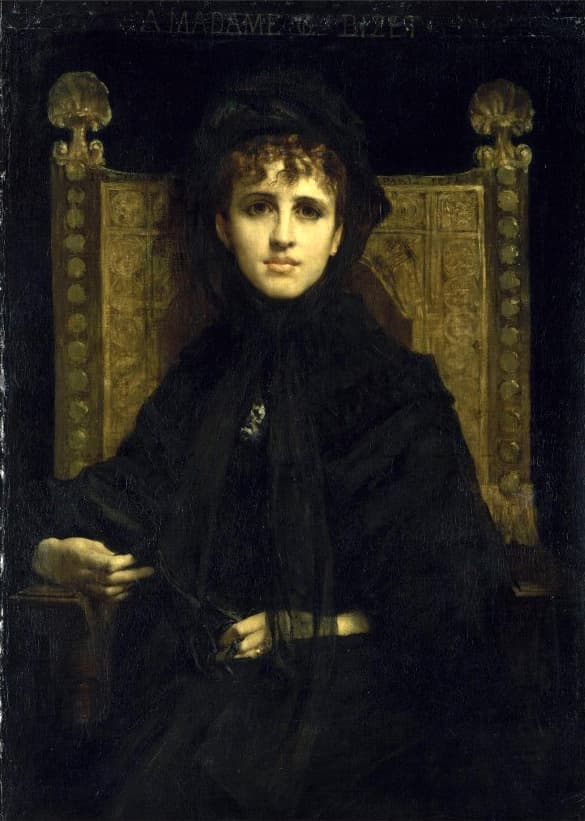
Jules-Élie Delaunay: Madame Georges Bizet
At the interment in the cemetery of Père Lachaise, several speeches were made, including one by Gounod “who after quoting a statement by the widow Bizet that there was not an hour or a minute of her married life that she would not gladly have again,” broke down and was unable to continue. In the evening, a special performance of Carmen was given, “and the press, which had so damned the opera three months before for a whole week, now proclaimed its composer a master.”
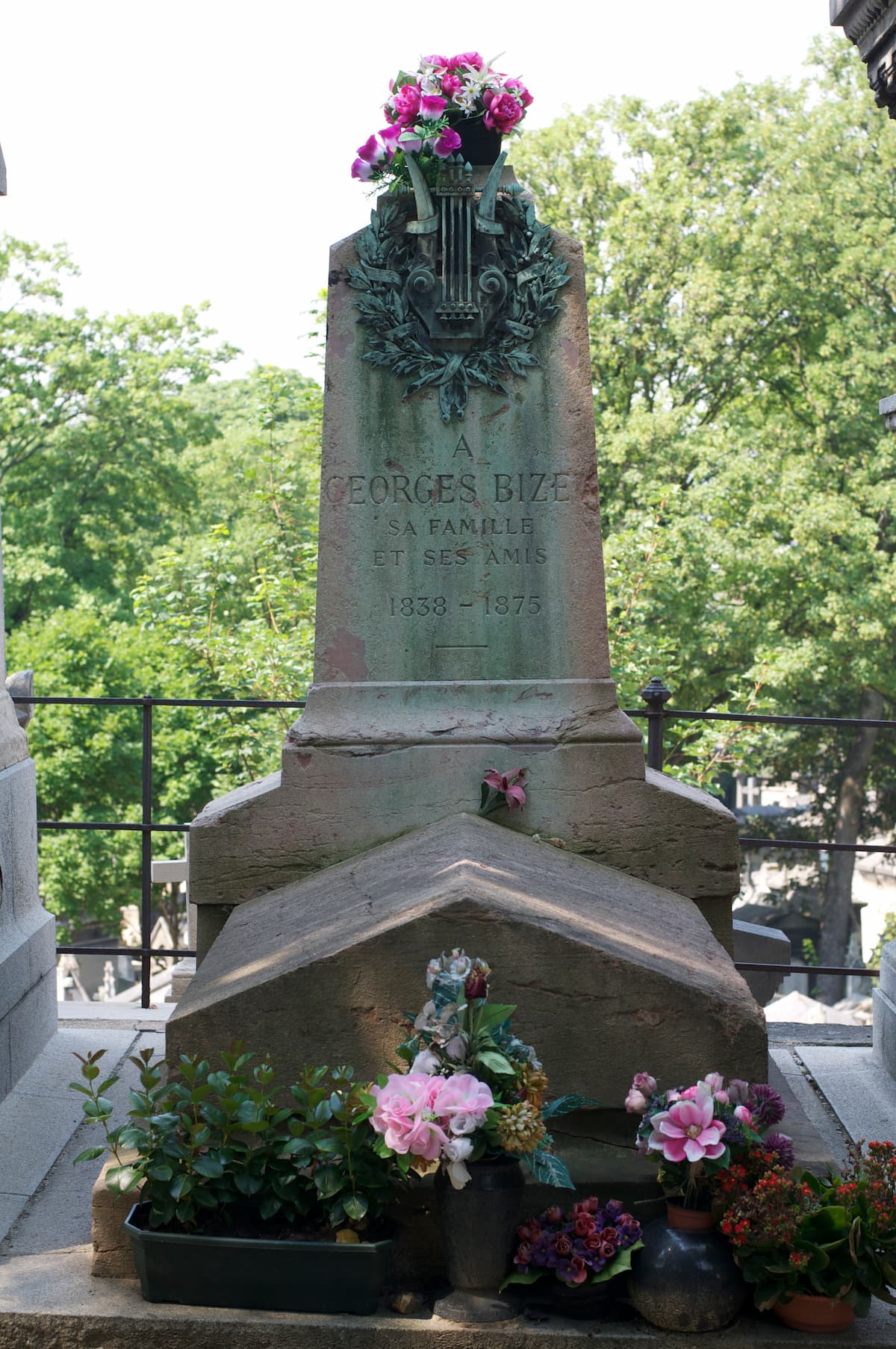
Grave of Georges Bizet, Père Lachaise Cemetery, Paris, France
While long rehearsals and the disappointment over the reviews might have had a part to play in Bizet’s death at the age of 36, it has reasonably been suggested that he long suffered from a debilitating heart defect. For one, he had never been able to climb the five flights of stairs to his friend’s Paris flat without pausing for breath.
For more of the best in classical music, sign up to our E-Newsletter
